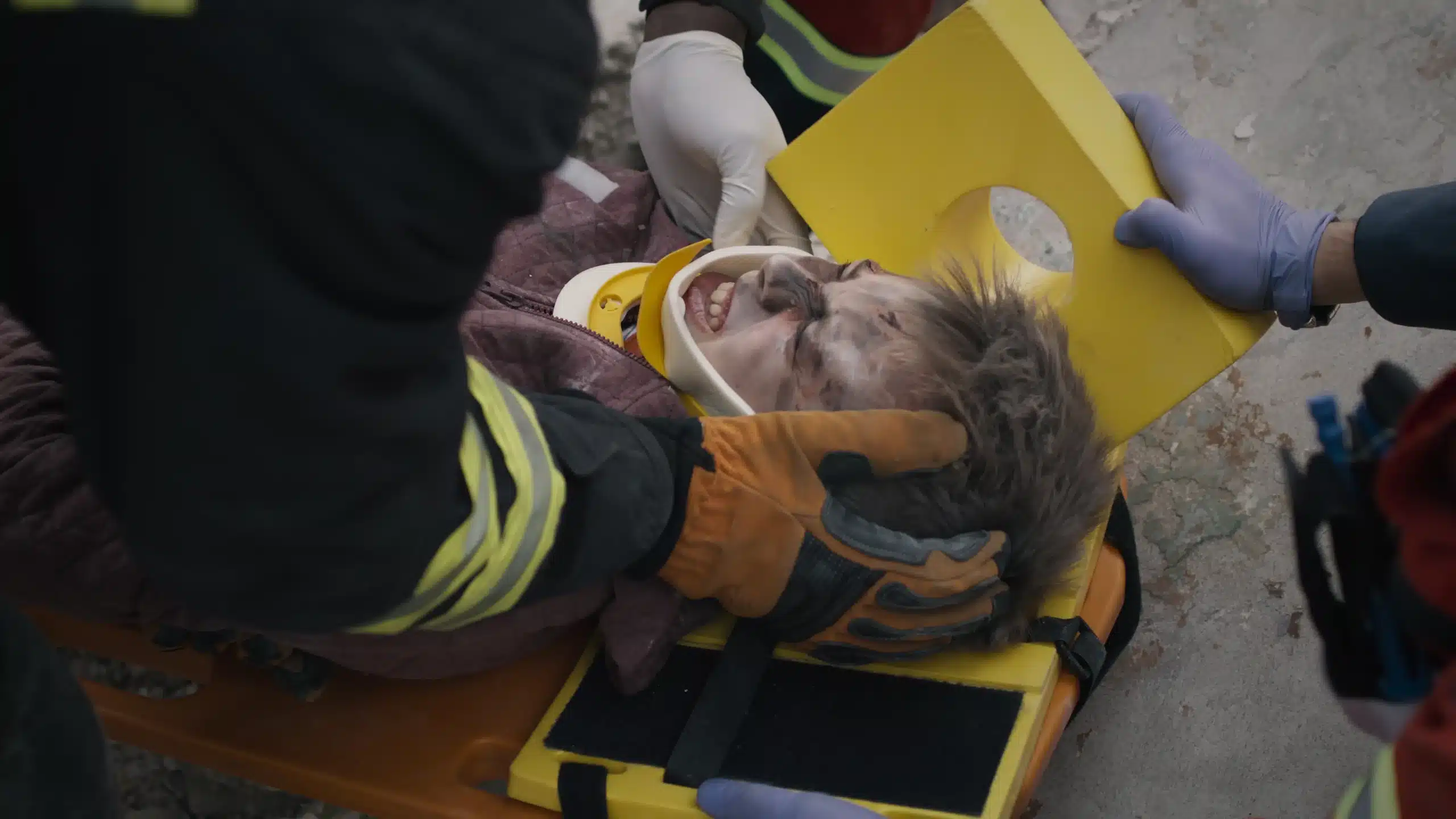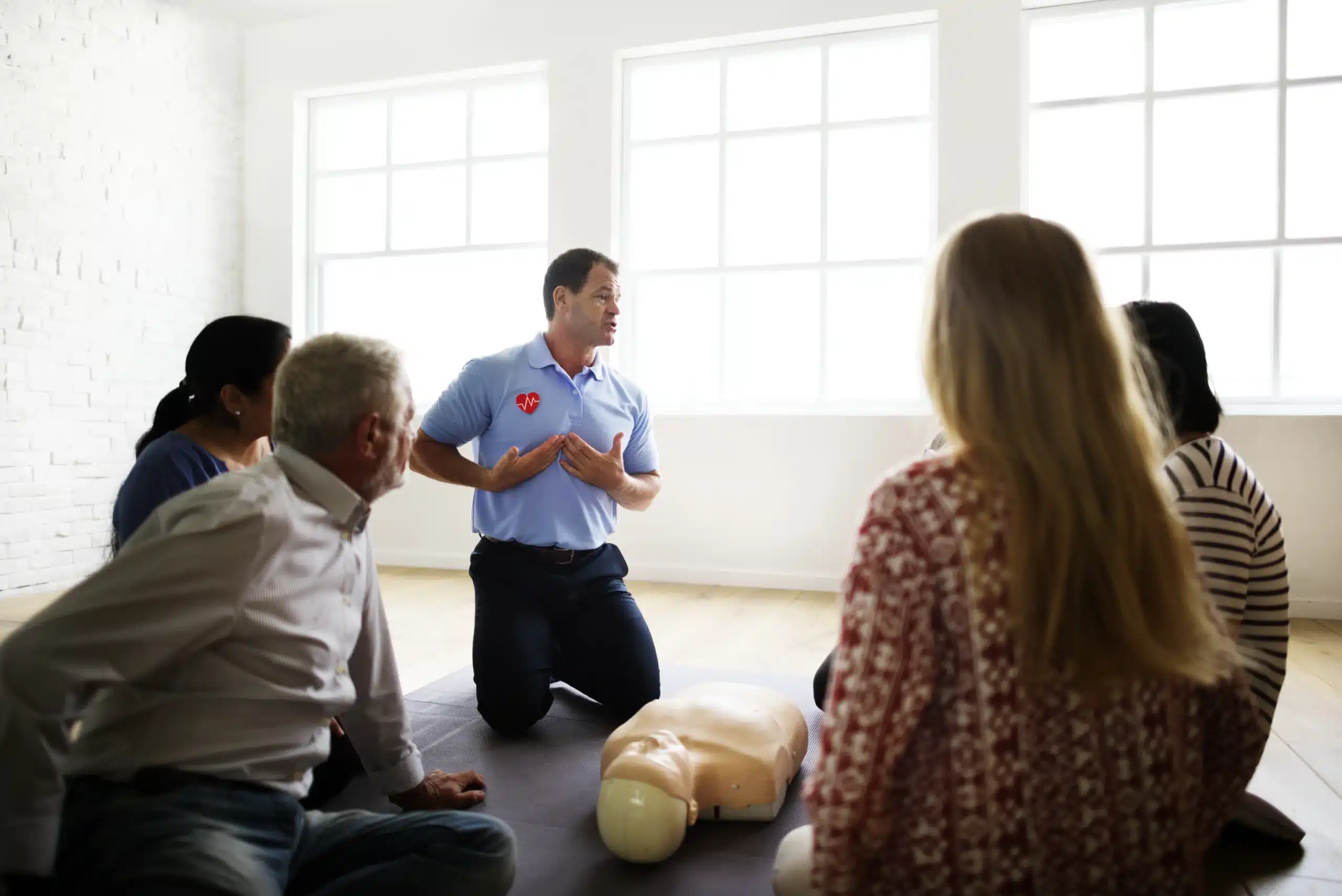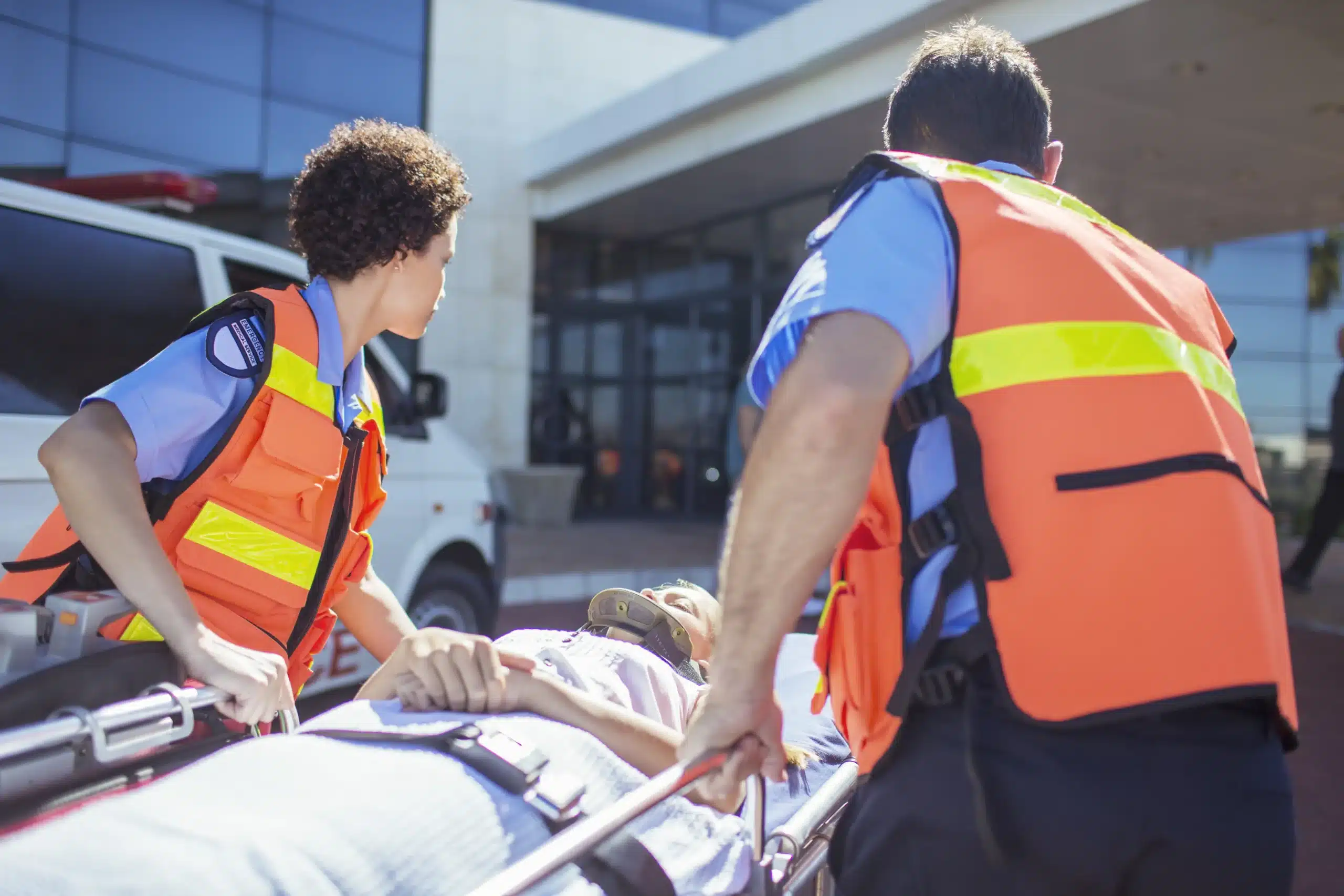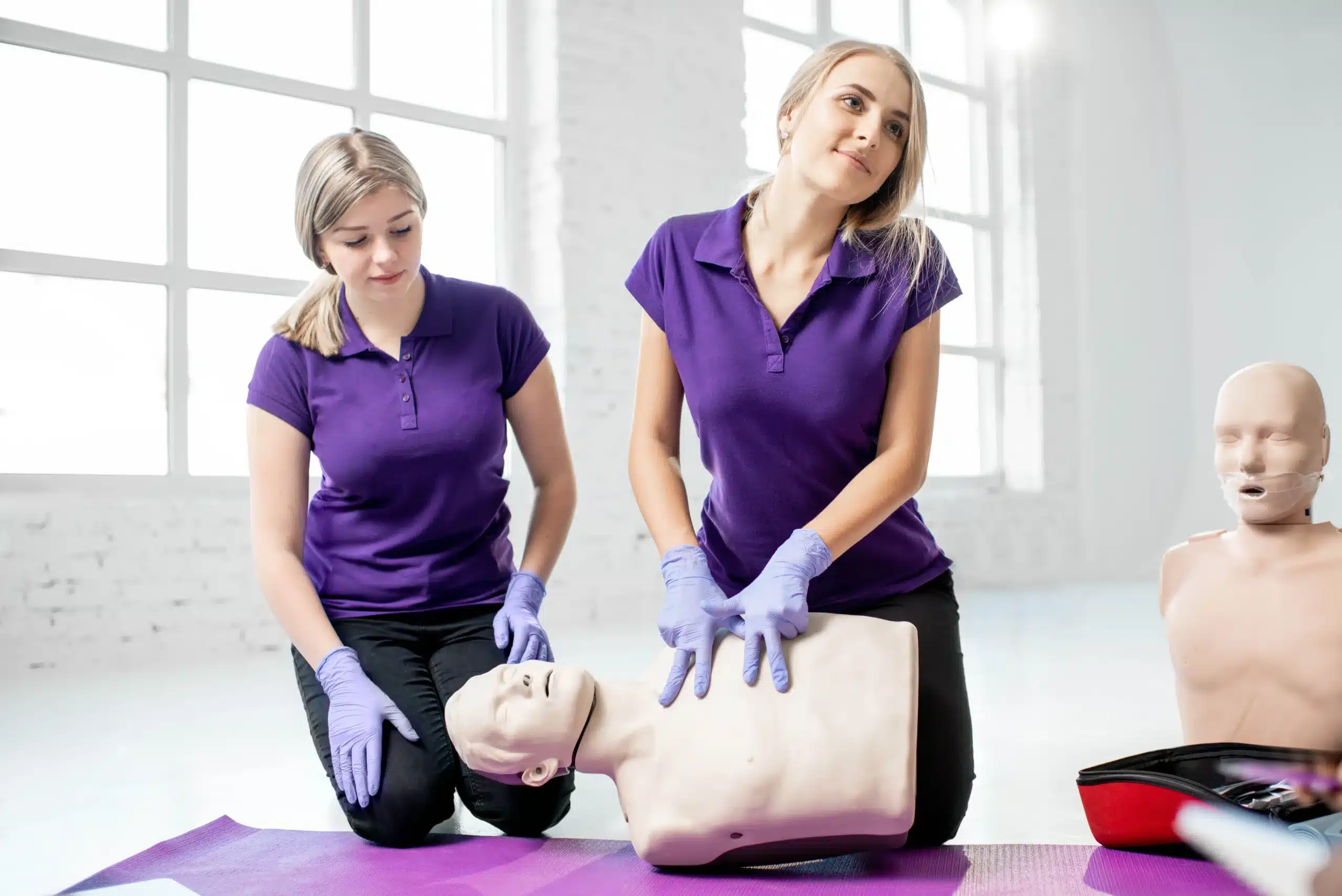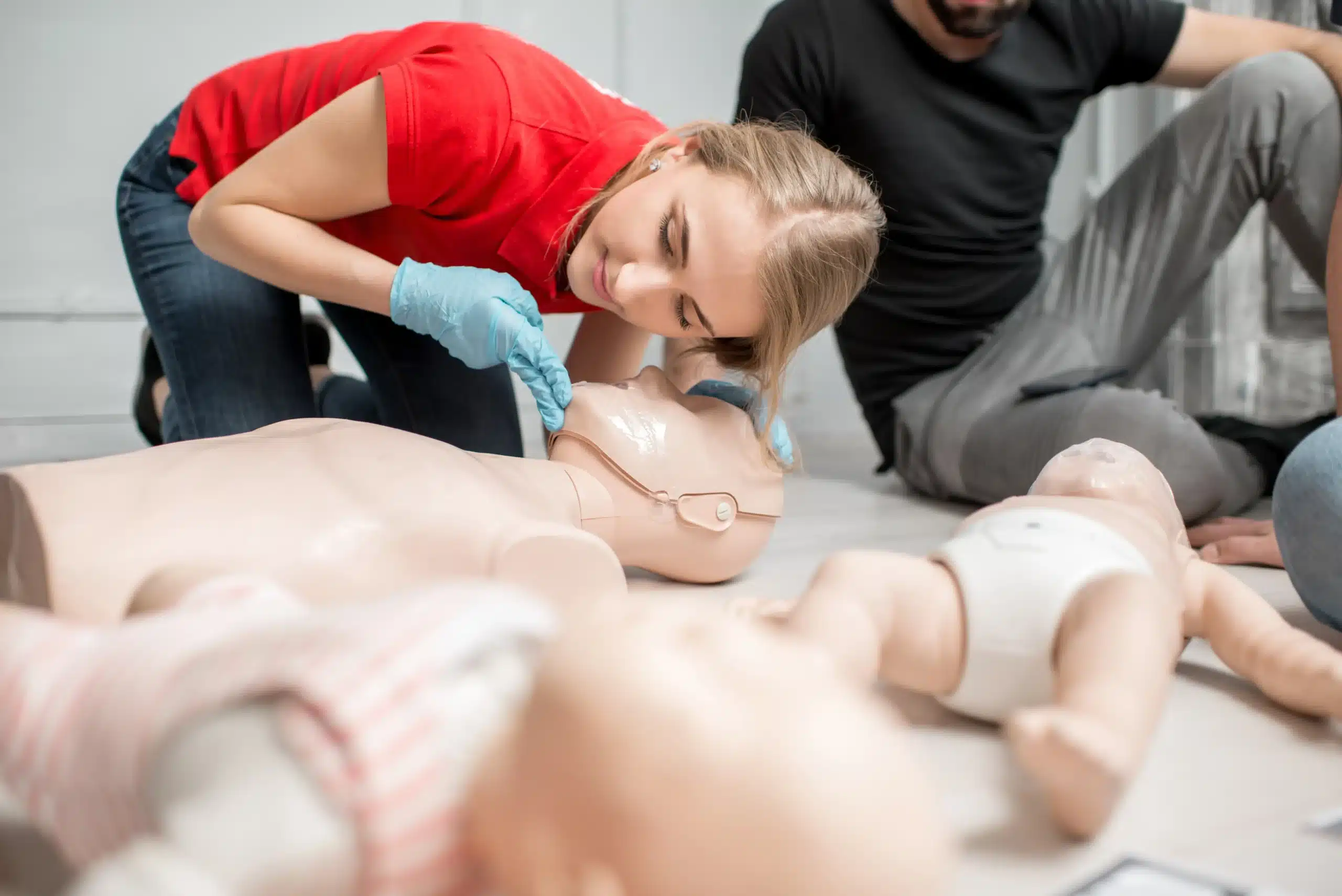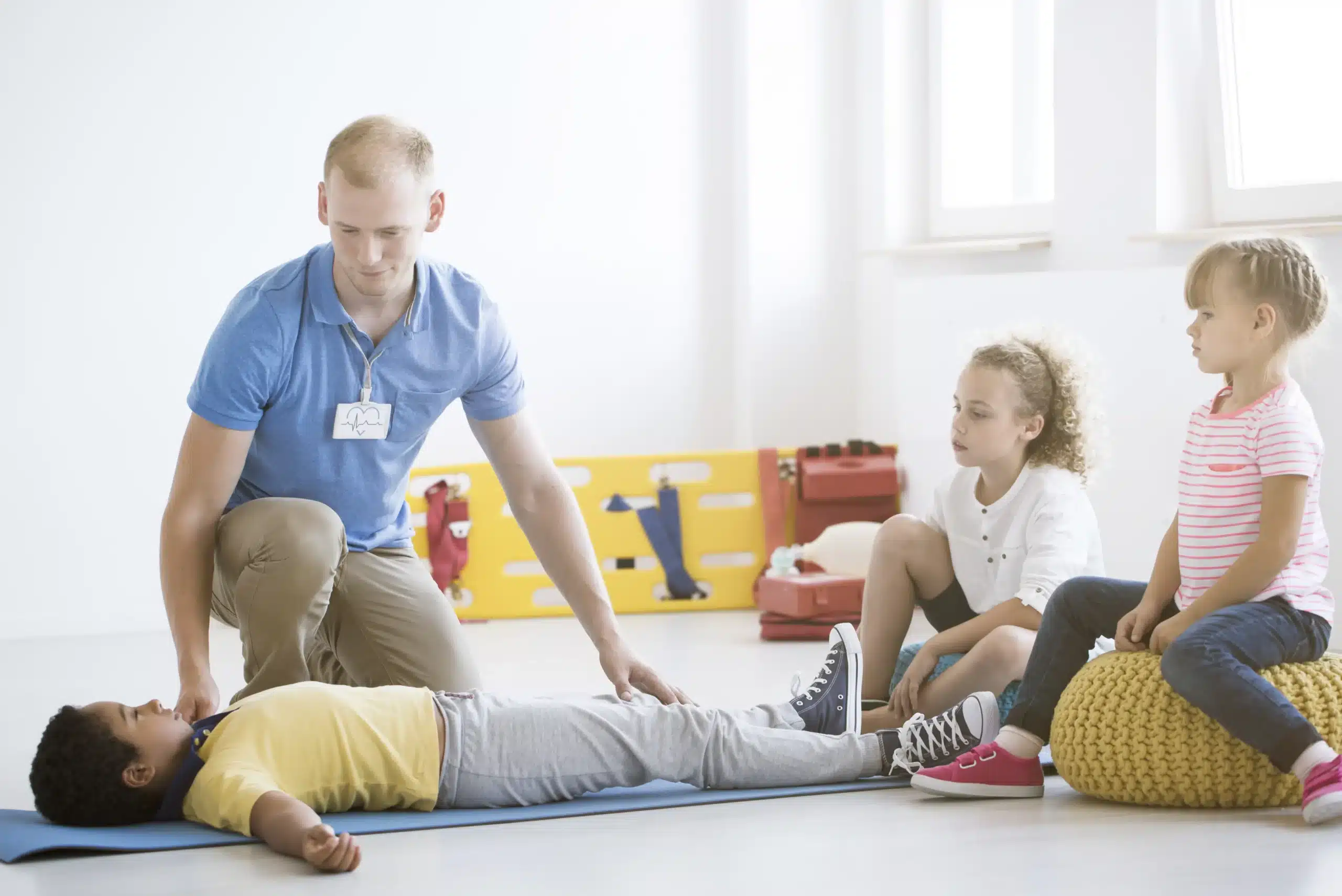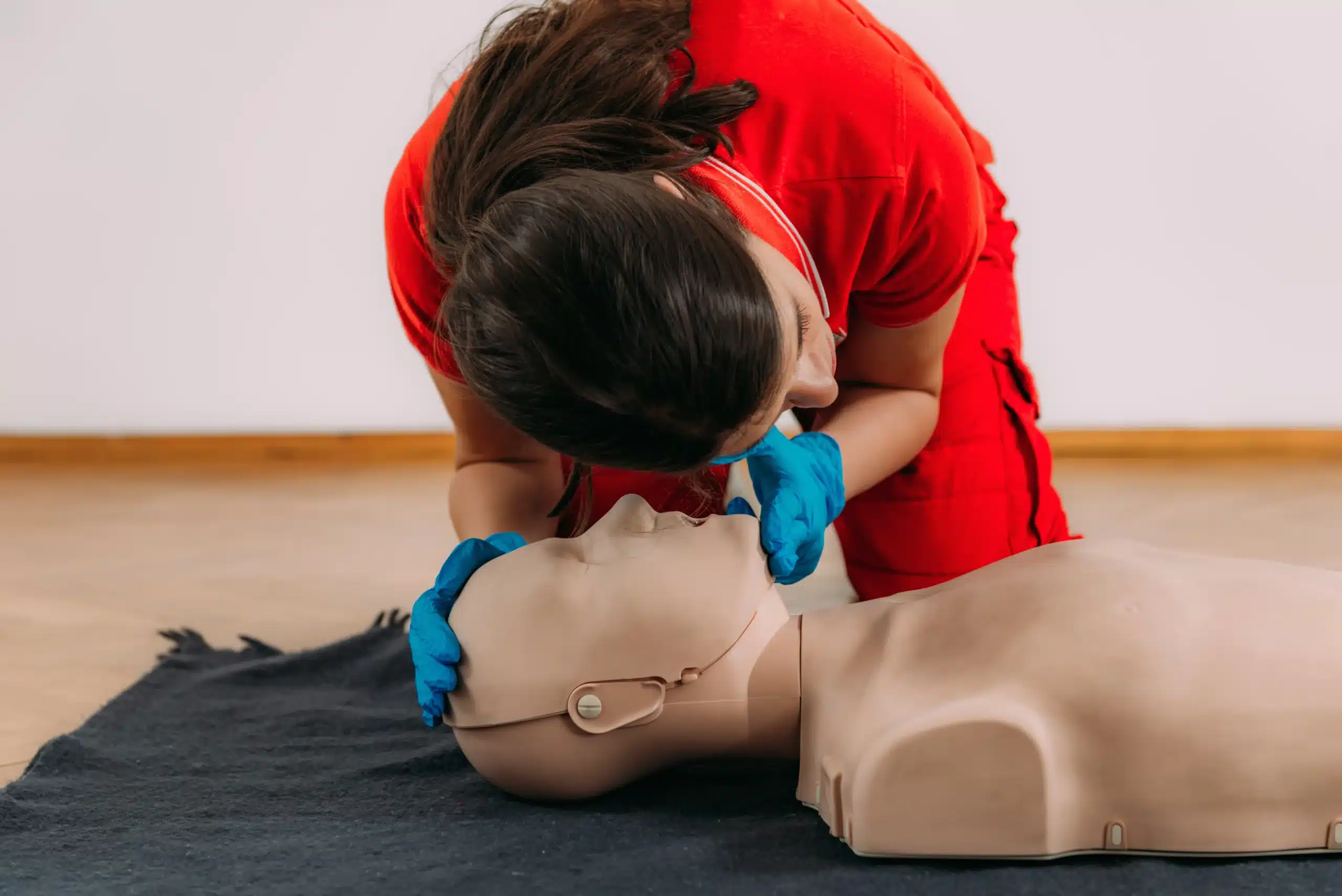Working in healthcare, especially with children, means being prepared for anything. From everyday bumps and bruises to more serious medical emergencies, having the right skills can make all the difference. That’s where Pediatric Advanced Life Support (PALS) training comes in. If you’re a healthcare provider in Stockton, PALS certification is more than just a credential—it’s a vital tool that equips you with the knowledge and confidence to handle pediatric emergencies effectively. This article explores the ins and outs of PALS certification, from what the course covers to where to find pediatric advanced life support in Stockton, empowering you to provide the best possible care for your young patients.
Key Takeaways
- PALS certification empowers you in pediatric emergencies: It provides the advanced skills and knowledge to confidently manage critical situations involving infants and children, leading to better patient outcomes.
- Stockton offers convenient and flexible PALS training: Reputable providers offer various schedules and blended learning formats, making it easy to find a course that fits your needs.
- Maintain your PALS skills for optimal patient care: Regularly renew your certification and pursue continuing education opportunities to stay up-to-date on the latest guidelines and best practices in pediatric advanced life support.
What is Pediatric Advanced Life Support (PALS)?
What is PALS and Why is it Important?
Pediatric Advanced Life Support (PALS) offers healthcare providers the specialized skills to confidently handle pediatric emergencies. These emergencies can range from breathing problems and shock to cardiac arrest, and proper training can dramatically affect a child’s survival. PALS certification teaches a systematic approach to assessment, intervention, and stabilization, empowering medical professionals to act quickly and efficiently in critical situations. This specialized training goes beyond basic CPR and first aid, covering the specific physiological differences between infants, children, and adults. For healthcare professionals in Stockton, understanding these nuances is crucial for providing effective care during pediatric emergencies. Learn more on our PALS certification course page.
Who Needs PALS Certification?
PALS certification is vital for any healthcare professional who works with children or might face a pediatric emergency. This includes doctors, nurses, paramedics, respiratory therapists, and other healthcare providers in emergency rooms, pediatric intensive care units, and other pediatric care settings. A PALS course provides these professionals with the advanced knowledge and skills to manage pediatric emergencies, ultimately improving patient outcomes. Even experienced healthcare providers benefit from the focused training and updated guidelines offered in PALS certification courses. It’s a valuable investment in your professional development and demonstrates a commitment to providing high-quality care for young patients.
PALS Certification in Stockton
Finding the right PALS certification course can feel overwhelming, but several excellent options are available in Stockton. Let’s take a look at some of the leading providers in the area.
Safety Training Seminars
Safety Training Seminars is a woman-owned American Heart Association (AHA) Training Center offering various AHA courses, including PALS certification. They pride themselves on convenient scheduling, with classes running seven days a week. This flexibility makes it easier for busy healthcare professionals in Stockton, Tracy, and Lodi to fit training into their schedules. They also offer a low price guarantee.
Elite Medical Training
Elite Medical Training focuses on providing high-quality training and certifications for healthcare providers and individuals throughout California. Founded by healthcare professionals, they emphasize practical, common-sense approaches to CPR and First Aid training, including PALS certification. Their courses are designed with busy professionals in mind.
LGL College
LGL College offers a comprehensive PALS certification program as part of their AHA certification courses. They offer a convenient BLS, ACLS, and PALS bundle, a great option for healthcare providers looking to refresh or obtain multiple certifications at once. This bundled approach can save both time and money.
Healthcare Learning Center
The Healthcare Learning Center is dedicated to providing AHA Provider Courses and Continuing Education Units for healthcare professionals in Stockton. They emphasize high-quality training, including PALS certification, to ensure healthcare providers are prepared for pediatric emergencies. They focus on giving providers the skills and confidence they need to respond effectively in critical situations.
Course Structure and Content
PALS courses blend online learning with hands-on skills sessions. This flexible approach lets you learn the essentials of Pediatric Advanced Life Support at your own pace and then demonstrate your skills in person.
Learn Online
The online portion provides foundational knowledge. You’ll work through interactive lessons, case studies, and simulations covering core PALS concepts. This self-paced format allows you to review materials as needed and master the content before your in-person skills session. PALS HeartCode offers a convenient blended learning experience.
In-Person Skills Assessment
After completing the online modules and passing the required exams, you’ll move on to the hands-on portion. This crucial step involves demonstrating your learned skills in a simulated environment. You’ll practice essential techniques like CPR, airway management, and using an AED on pediatric patients. Successful completion of this in-person skills checkoff is required for PALS certification.
Key Topics Covered
The PALS course covers a range of essential topics to equip you with the skills to respond effectively to pediatric emergencies.
Assess Pediatric Patients
You’ll learn how to quickly and accurately assess a child’s condition, identify signs of respiratory or cardiac distress, and determine the appropriate course of action. Early and accurate assessment is critical for positive patient outcomes. PALS teaches the skills to effectively evaluate and respond to pediatric emergencies.
Manage Airways
Airway management is a cornerstone of PALS training. You’ll learn techniques for opening and maintaining a child’s airway, including how to use specialized equipment. PALS training covers various airway management techniques specific to children of different ages and sizes. Learn more about airway management techniques in our PALS course.
Perform CPR and Use AEDs on Children
The course provides comprehensive training in pediatric CPR, including how to perform chest compressions and rescue breaths on infants, children, and adolescents. You’ll also learn how to safely and effectively use an AED on a child. These life-saving skills are essential for responding to cardiac arrest in children. Explore the details of pediatric CPR training.
Administer Pediatric Medication
Administering medication in emergency situations requires precision and a thorough understanding of pediatric dosages. PALS training covers common emergency medications used in pediatric care, emphasizing the importance of teamwork and communication during these critical moments. Effective communication is key to safe medication administration. Our PALS course emphasizes the importance of communication in emergency situations.
Implement Emergency Procedures for Children
PALS training prepares you to implement a range of emergency procedures specific to pediatric patients. From managing shock and respiratory distress to recognizing and treating specific medical conditions, you’ll develop the skills to handle a variety of pediatric emergencies and provide high-quality care. Learn how PALS training enhances emergency response for pediatric patients.
Cost and Value of PALS Certification
Getting PALS certified is an investment in your skills and your patients’ well-being. Understanding the associated costs and the significant value it brings can help you make an informed decision.
Stockton Pricing
At Safety Training Seminars, our PALS certification course blends online learning with practical, in-person training. You’ll start with a 3–4 hour online component, followed by a brief 30–40 minute in-person skills test. We offer flexible scheduling options, with classes available seven days a week. The total cost, including the online portion, skills test, and your certification card, is $290.
Discounts and Promotions
We’re committed to providing affordable, high-quality training, and we believe we offer the lowest prices in Northern California. We even have a price-match guarantee, so you can be confident you’re getting the best possible value. Check our website for current promotions and discounts.
Benefits for Healthcare Professionals
PALS certification is invaluable for healthcare professionals. It equips you with the skills to confidently manage pediatric emergencies, ultimately leading to better patient outcomes. The course covers essential topics, from assessing a child in distress to administering medications and performing CPR. By becoming PALS certified, you enhance your own capabilities and contribute to a stronger emergency response network within the Stockton community.
Common PALS Questions
This section answers some of the most frequently asked questions about PALS certification. Hopefully, this helps clear up any confusion and gets you ready to sign up for a course.
Eligibility and Prerequisites
PALS certification equips you with life-saving skills. It’s crucial for any healthcare provider who might encounter pediatric emergencies. While there aren’t strict prerequisites for taking a PALS course, a background in healthcare is definitely helpful. Familiarity with basic life support (BLS) is recommended, as PALS builds upon those foundational skills. If you’re a doctor, nurse, paramedic, respiratory therapist, or another healthcare professional regularly working with children, PALS certification is essential for your career.
Course Schedule and Availability
One of the best things about getting your PALS certification in Stockton is the flexible course schedule. Providers offer classes seven days a week, from 7 a.m. to 6 p.m. This makes it easier to fit the training into your busy schedule, whether you’re a working professional or a student. Check with your chosen training center for specific class times.
Certification Validity and Renewal
Your PALS certification is typically valid for two years. To stay current and maintain your skills, you’ll need to renew your certification before it expires. This ensures you’re always up-to-date on the latest pediatric advanced life support guidelines and best practices.
Online vs. In-Person Training
PALS courses are offered in two formats: online and in-person. The online portion, known as PALS HeartCode, allows you to learn the cognitive material at your own pace. You’ll then complete an in-person skills session to demonstrate your proficiency. Many individuals wonder if online PALS certification is as valid as in-person training. Rest assured, both formats lead to the same recognized certification, as long as they are through an accredited provider like the American Heart Association. The blended learning approach simply offers more flexibility.
Prepare for Your PALS Certification
Getting ready for your PALS certification involves more than just showing up on the day of the course. A little prep work goes a long way in helping you absorb the material and build confidence. Here’s how to get ready:
Essential Study Materials and Resources
The American Heart Association offers a variety of PALS study materials designed to help you learn the core concepts and practice essential skills. The PALS Provider Manual is your go-to resource, covering everything from basic life support to advanced airway management. Supplementing your learning with the PALS Pocket Reference Card can be incredibly helpful for quick reviews and on-the-go access to key information.
Practice Scenarios and Simulations
PALS certification emphasizes the practical application of skills in real-world scenarios. The PALS HeartCode blended learning program combines online coursework with hands-on practice. Working through simulated pediatric emergencies helps you develop critical thinking skills and apply your knowledge under pressure. This approach builds confidence and prepares you to respond effectively in actual emergencies.
Tips for PALS Training Success
To make the most of your PALS training, start early and review the materials consistently. Don’t try to cram everything in the night before. Familiarize yourself with the algorithms and practice the skills regularly. If you have access to a study group or mentor, take advantage of the opportunity to discuss challenging concepts and practice together. Remember, PALS certification is an investment in your ability to provide high-quality care to young patients, so dedicate the time and effort needed to succeed. Even experienced healthcare providers find value in regular PALS training.
Benefits of PALS Certification
Earning your PALS certification is a significant achievement, but what real-world advantages does it offer? Beyond the credentials, PALS certification equips healthcare providers with essential skills and knowledge that directly benefit both their careers and the young patients in their care.
Gain Confidence in Emergencies
Picture yourself facing a pediatric emergency. Seconds matter, and clear thinking and decisive action can make all the difference. PALS certification provides the training and practice necessary to respond confidently and effectively in these high-pressure situations. Knowing you can manage a child’s airway, perform CPR, or administer critical medications transforms your approach to pediatric care, replacing uncertainty with competence. This confidence benefits your patients and reduces your own stress in critical moments.
Improve Patient Outcomes
The ultimate goal of PALS is to improve outcomes in pediatric emergencies. By mastering the skills and protocols taught in PALS training, healthcare professionals are better prepared to provide timely and appropriate interventions. This can significantly increase the chances of survival and minimize long-term complications for young patients. As more healthcare providers complete PALS training, the overall quality of pediatric emergency care in the community improves, leading to better health outcomes for children.
Understand Pediatric Care
PALS certification goes beyond simply teaching procedures. It provides a deeper understanding of the unique physiological and psychological needs of infants and children. This knowledge is invaluable in any healthcare setting, allowing providers to recognize subtle signs of distress, anticipate potential complications, and tailor their care to each child’s specific needs. This comprehensive approach leads to more accurate assessments, faster interventions, and ultimately, better patient care.
Advance Your Career
In a competitive healthcare environment, PALS certification is a valuable asset. It demonstrates a commitment to excellence in pediatric care and can create new opportunities. Many healthcare facilities require or prefer PALS certification for positions involving the care of infants and children. This credential on your resume can distinguish you from other candidates and enhance your career prospects, potentially leading to higher earning potential and greater job satisfaction.
Maintain Your PALS Certification
Keeping your PALS skills sharp is crucial for providing the best possible care to young patients. This section covers how to stay up-to-date with the latest advancements in pediatric advanced life support.
Renew Your Certification
PALS certification is typically valid for two years. To maintain your credentials and ensure your skills are current, you’ll need to renew your PALS certification before it expires. The American Heart Association offers renewal courses that cover updates to guidelines and best practices. Don’t let your certification lapse—stay ahead of the game and be prepared for any pediatric emergency.
Continuing Education Opportunities
Even between renewals, there are plenty of ways to expand your knowledge and refine your PALS skills. Organizations like the American Red Cross offer continuing education courses that delve deeper into specific aspects of pediatric care. These courses can help you stay informed about the latest research and techniques. Look for opportunities that align with your interests and professional goals.
Stay Current with Pediatric Emergency Care
The world of pediatric emergency care is constantly evolving. New research, technologies, and treatment protocols emerge regularly. Staying informed about these advancements is essential for providing effective and up-to-date care. PALS training equips healthcare providers with the skills to respond effectively to medical emergencies involving infants and children. Regularly review medical journals, attend conferences, and participate in online forums to stay on top of the latest developments. This ongoing learning will enhance your skills and demonstrate your commitment to providing high-quality care.
PALS Training’s Impact on Stockton Healthcare
PALS training significantly strengthens Stockton’s healthcare system, improving the community’s response to pediatric emergencies. The impact is multifaceted, from better patient outcomes to a higher overall standard of pediatric care.
Improve Pediatric Emergency Response
PALS courses, offered by the American Heart Association (AHA) in Stockton, are crucial for healthcare professionals caring for critically ill or injured children. These PALS courses equip providers with the skills to manage pediatric emergencies. As more Stockton healthcare providers complete PALS training, the community’s capacity to respond to these emergencies improves, leading to better care and outcomes for young patients. This enhanced preparedness means quicker interventions, more effective treatments, and ultimately, more lives saved.
Address Local Healthcare Challenges
PALS certification directly addresses the challenges of pediatric emergency care in Stockton. It empowers healthcare providers to handle the unique medical needs of infants and children. By enrolling in a PALS certification course, professionals gain the expertise to manage pediatric emergencies, from respiratory distress to cardiac events. This specialized training ensures Stockton’s healthcare system is prepared for the complex medical needs of its youngest residents, strengthening the local healthcare system and contributing to a healthier community.
Enhance Community Health
PALS training has a ripple effect throughout Stockton. It raises the quality of pediatric care, creating a safer environment for children. PALS certification gives healthcare professionals the confidence to respond effectively in critical situations, improving patient outcomes and survival rates. This higher standard of care builds trust between healthcare providers and the community, creating a stronger, healthier Stockton. Investing in PALS training is investing in the community’s well-being.
Choose the Right PALS Course in Stockton
Factors to Consider
Finding the right PALS course in Stockton means considering a few key things to ensure you get the most out of your training. First, think about the course format that works best for how you learn and your schedule. Many providers offer blended learning, like the PALS HeartCode program, combining online coursework with hands-on skills sessions. This flexible approach lets you learn at your own pace online before demonstrating your skills in person. Learn more about this option in our PALS HeartCode guide. The training provider’s credentials are also essential. Look for providers accredited by the American Heart Association (AHA), with experienced instructors. Quality training significantly impacts your ability to respond effectively in a pediatric emergency.
Make an Informed Decision
Before enrolling, check out reviews and testimonials from past participants. These offer helpful insights into the course’s effectiveness and the teaching style. Also, consider the location and schedule to ensure they fit your availability. You can find PALS courses throughout Stockton, making it easy to find a convenient location. Considering these factors helps you choose a PALS course that aligns with your professional needs and builds your pediatric advanced life support skills.
Related Articles
- Pediatric Advanced Life Support (PALS) in Tracy – Stockton CPR Classes
- PALS HeartCode Tracy: Your Certification Guide – Stockton CPR Classes
- Online PALS Classes in Lodi: Your Certification Guide – Stockton CPR Classes
- AHA PALS Classes in Stockton, CA – Stockton CPR Classes
- BLS Renewal in Lodi: Your Go-To Guide – Stockton CPR Classes
Frequently Asked Questions
Is PALS certification difficult to obtain?
The PALS course is designed to be challenging but achievable. The blended learning format, combining online learning with in-person skills sessions, allows you to learn at your own pace and focus on mastering the material. While the course requires dedication and effort, the supportive learning environment and experienced instructors help students succeed.
How long does it take to become PALS certified?
The time commitment for PALS certification varies depending on the chosen course format. Blended learning courses typically involve 3-4 hours of online coursework followed by a brief in-person skills session lasting approximately 30-40 minutes. This flexible format allows you to complete the online portion at your convenience before scheduling your in-person skills checkoff.
What if my PALS certification expires?
If your PALS certification expires, you’ll need to take a renewal course to regain your credentials. It’s essential to keep your certification current to ensure you’re up-to-date on the latest guidelines and best practices in pediatric advanced life support. Renewal courses are readily available and often shorter than the initial certification course.
What’s the difference between PALS and BLS?
While both PALS and BLS focus on life-saving techniques, PALS (Pediatric Advanced Life Support) builds upon the foundational skills taught in BLS (Basic Life Support). PALS delves deeper into the specific physiological differences between children and adults, providing healthcare professionals with the advanced knowledge and skills to manage pediatric emergencies effectively. BLS is often a prerequisite or recommended foundation for PALS certification.
How can I prepare for my PALS course?
Preparing for your PALS course involves reviewing the provided study materials, familiarizing yourself with the algorithms, and practicing the skills regularly. Take advantage of any available practice scenarios or simulations to apply your knowledge in realistic emergency situations. Consistent study and practice will build your confidence and prepare you for success in the course.
